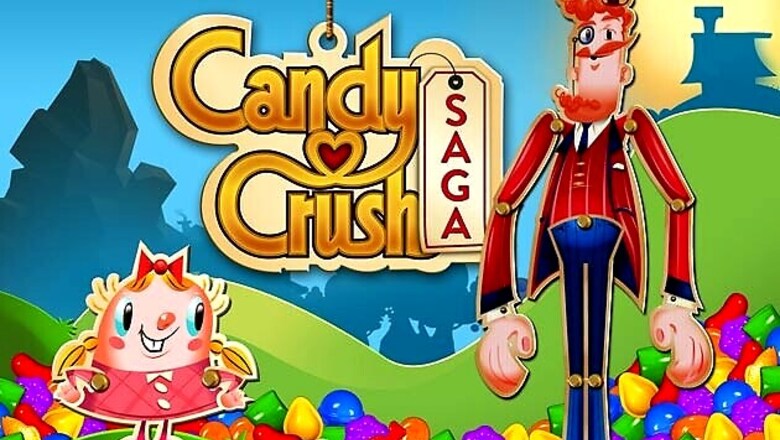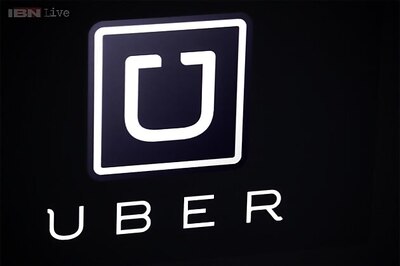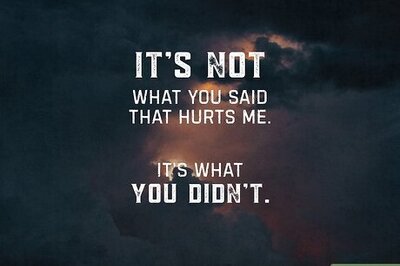
views
New York: The company behind "Candy Crush Saga" is going public, hoping the popularity of its addictive online game will translate to sweet returns for itself and its investors.
King Digital Entertainment PLC, which also makes lesser-known games such as "Bubble Witch Saga" and "Pet Rescue Saga," did not disclose how many shares it expects to offer in the IPO or a projected price range for the stock. In papers filed Tuesday with the Securities and Exchange Commission, the company said it hopes to raise as much as $500 million in the offering. The amount could change in the coming weeks as the company and the IPO's underwriting banks gauge investor demand.
"Candy Crush" was the most downloaded free app on iPhones and iPads in 2013, beating Facebook, Google Maps and YouTube. The game's success helped King replace Zynga Inc. -maker of "FarmVille" and "Mafia Wars"- as the No. 1 producer of games played on Facebook.
So is King the next Zynga?
Zynga, too, once ruled the realm of online games. And in 2011, the company went public riding the popularity of an addictive game, "FarmVille." Founded in 2002, King only decided to go public once "Candy Crush" had achieved the pinnacle of popularity. But several analysts say any comparisons between King and Zynga are unfair - to both companies.
"They have been around longer and are much larger," said John Fitzgibbon, the founder of IPOScoop.com. "Why go public? Because they can."
King is five years older than San Francisco's Zynga, and thanks largely to in-app purchases people make while playing "Candy Crush," the company generated 2013 revenue of $1.88 billion, more than 10 times its 2012 revenue of $164.4 million. Zynga's 2013 revenue, meanwhile, was $873.3 million, down from $1.28 billion in 2012.
Another major difference: King is profitable, while Zynga is not. King had 665 employees at the end of 2013. Zynga, meanwhile, is cutting jobs but still has about 2,100 employees, down from a peak of 3,300 in 2012, at the tail end of the "FarmVille" craze.
"They are two different kinds of game companies, with 'Candy' being a bit more mobile centric," said Gartner analyst Brian Blau. They also take different approaches to game development, he added. Zynga analyzes how its games are played to try to make the games better, more addictive and more lucrative once they are already out, while King tests its titles "for a very, very long time" before releasing them to the public, Blau said.
"Candy Crush," which involves matching rows of bright-hued virtual candies to make them disappear, is successful by any measure. There were 93 million users playing the game every day in December, according to King's regulatory filing. If King isn't a household name, "Candy Crush" certainly is. The game's fans can be spotted on subways, waiting in line at the Post Office or in the theater before the start of a movie. "Candy Crush" is free to play, but users spend money on extra items to boost gameplay. That's the model for Zynga's Facebook games, too.
King said in its filing that the IPO will include shares offered by the company as well as those offered by existing stockholders. The Dublin-based company, which has offices in Sweden, London, San Francisco and elsewhere, plans to list its stock on the New York Stock Exchange under the ticker symbol "KING."
King had filed its original IPO papers last summer under a federal law passed in 2012 that allows companies with less than $1 billion in revenue in its last fiscal year to keep its IPO documents under seal until the final few weeks before a price is set on a stock offering. The legislation - known as the Jumpstart Our Business Startups, or JOBS, Act - allowed Twitter Inc. to secretly fine-tune its filing to satisfy regulators before going public in November 2013.
King will certainly face questions from investors over whether it sustain soaring revenue growth. Already, the company saw a sequential slowdown between the third and fourth quarters of last year. Its revenue in the first three months of 2013 was $205.9 million. It more than doubled that in the second quarter, to $455.5 million. Revenue then peaked at $621.2 million in the third quarter and declined 3 percent, to $601.7 million in the fourth.
Meanwhile, the company behind another wildly popular mobile game, "Angry Birds," has not disclosed IPO plans despite rumours. Founded in 2003, Espoo, Finland-based Rovio is still privately held.


















Comments
0 comment